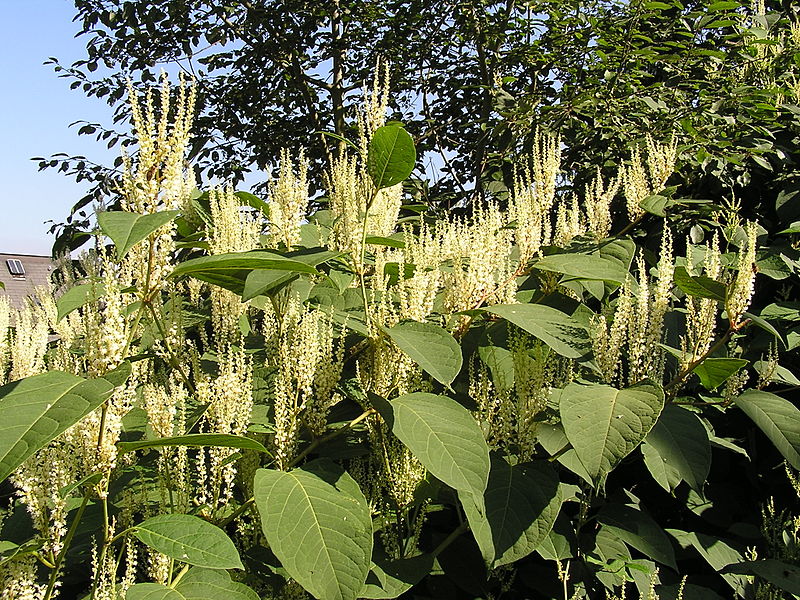“Japanese Knotweed”: two words that every informed home seller will dread. Once upon a time it was simply a pretty plant brought in to give Britain’s suburban gardens a touch of the exotic. Today it is enough to drive fear into the heart of the hardiest home seller due to its reputation for damaging foundations with far reaching, relentless roots.

Japanese Knotweed – wiki image via MdE
Property surveyors, insurance companies, solicitors and lending banks don’t think much of it either. A mere mention of a history of Japanese Knotweed, let alone current visible evidence, can be enough to scupper a sale if the issue is not handled correctly.
What is Japanese Knotweed?
Native to East Asia, Knotweed was imported to the UK in the 19th century and is now widely established across the country. It is an ornamental plant, with tall growths that look similar to bamboo. Its deep roots regenerate and are difficult to remove. Knotweed spreads rapidly, suppressing other plants. It is a big enough problem that its control may be enforced by law if it affects neighbours.
But what is the reality of Japanese Knotweed? Is it really an inevitable deal breaker or is there more to it, and can anything be done to mitogate the damage and salvage a sale if knotweed becomes a problem in your property deal?
SellingUp’s Expert Q&A: Japanese Knotweed
How big a problem is Japanese Knotweed for property sellers?
Jim Glaister from the Knotweed Company: “People panic about Knotweed. There’s a lot of scaremongering and sensationalising. As a result, they sometimes try to hide the fact they’ve got Knotweed, and it backfires when they try to sell.
“Buyers panic too and back out of the deal. So it’s worth stressing that yes, it’s an issue, but it’s a manageable one.
Peter Whiteside from Elcot Environmental: “I take a fairly pragmatic approach to this. There’s all sorts of hype about Knotweed. It doesn’t grow through concrete, only fractures. It won’t grow through sound walls. I’ve dug Knotweed from hundreds of properties to find no structural damage. The chances of it penetrating a building are less than one in a hundred, and there’s always a reason for that.”
Will finding Japanese Knotweed affect my buyers’ ability to get a mortgage?
Jim Glaister: “Professional help is best, because mortgage companies will look for evidence of a treatment programme and you won’t get that if you do it yourself. Without that, you can still do everything right but mortgage companies won’t acknowledge it.”
Peter Whiteside: “It really will affect your ability to get a mortgage. An RICS surveyor has no option if they find Knotweed on the property: they have to put zero value on the house until there’s been a specialist evaluation.
“We will assess the risk and eradicate the Knotweed. The criteria for proof of eradication is a minimum of four growing seasons, and a minimum of the last two years with no herbicide use, with no emergence of live Knotweed in that time. We then provide 10-year insurance-backed warranties that cover the whole of the property.”
What are the costs of treating Japanese Knotweed?
Jim Glaister: “The costs of dealing with Knotweed are rarely prohibitive, and when they are, it’s usually the result of years of neglect and incompetence. Most high street mortgage lenders simply want to know it hasn’t caused a problem already, and that there’s a plan in place that they approve of. Some will specify who they want.
“As a ballpark figure an area of less than 25 square metres with no great complications would cost around £2,000 for a five-year programme. If it’s on an adjoining property then it does complicate matters. It’s always better to take a holistic approach and get properties to co-operate.”
Peter Whiteside: “£2,000-3,000 will cover most average properties. But it’s best left to a specialist. The worst cases are when people have had a go themselves, dug out some of the Knotweed, but you have no idea what is going to come up where.”
